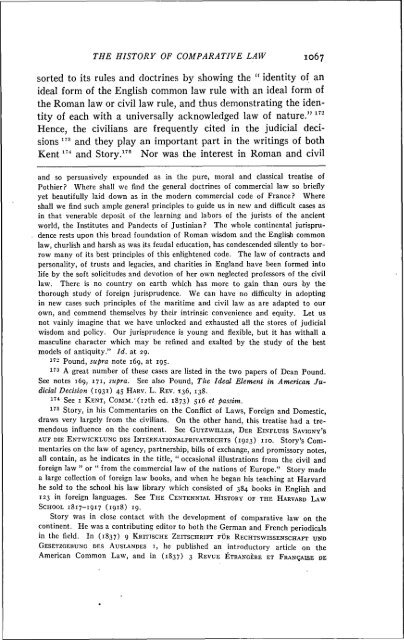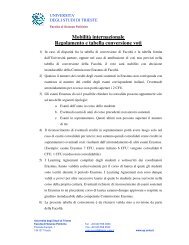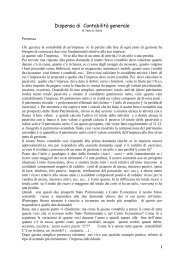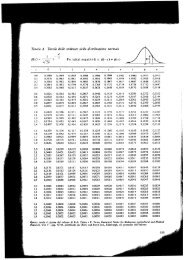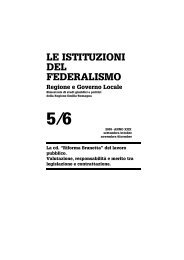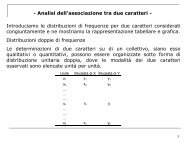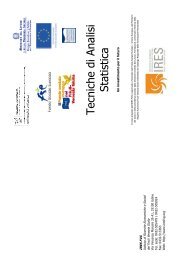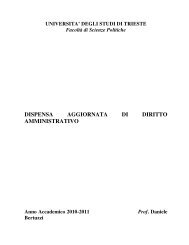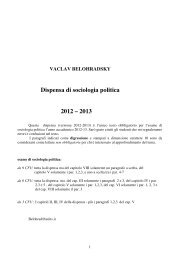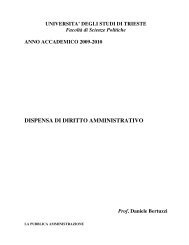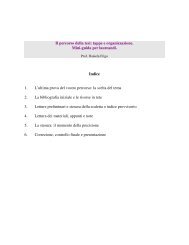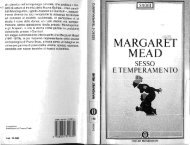THE HISTORY OF COMPARATIVE LAW * ^COMPARATIVE law, as ...
THE HISTORY OF COMPARATIVE LAW * ^COMPARATIVE law, as ...
THE HISTORY OF COMPARATIVE LAW * ^COMPARATIVE law, as ...
Create successful ePaper yourself
Turn your PDF publications into a flip-book with our unique Google optimized e-Paper software.
<strong>THE</strong> <strong>HISTORY</strong> <strong>OF</strong> <strong>COMPARATIVE</strong> <strong>LAW</strong> 1067<br />
sorted to its rules and doctrines by showing the " identity of an<br />
ideal form of the English common <strong>law</strong> rule with an ideal form of<br />
the Roman <strong>law</strong> or civil <strong>law</strong> rule, and thus demonstrating the identity<br />
of each with a universally acknowledged <strong>law</strong> of nature." ""<br />
Hence, the civilians are frequently cited in the judicial decisions<br />
^" and they play an important part in the writings of both<br />
Kent ^'* and Story.^" Nor w<strong>as</strong> the interest in Roman and civil<br />
and so persu<strong>as</strong>ively expounded <strong>as</strong> in the pure, moral and cl<strong>as</strong>sical treatise of<br />
Pothier? Where shall we find the general doctrines of commercial <strong>law</strong> so briefly<br />
yet beautifully laid down <strong>as</strong> in the modern commercial code of France? Where<br />
shall we find such ample general principles to guide us in new and difficult c<strong>as</strong>es <strong>as</strong><br />
in that venerable deposit of the learning and labors of the jurists of the ancient<br />
world, the Institutes and Pandects of Justinian? The whole continental jurisprudence<br />
rests upon this broad foundation of Roman wisdom and the English common<br />
<strong>law</strong>, churlish and harsh <strong>as</strong> w<strong>as</strong> its feudal education, h<strong>as</strong> condescended silently to borrow<br />
many of its best principles of this enlightened code. The <strong>law</strong> of contracts and<br />
personality, of trusts and legacies, and charities in England have been formed into<br />
life by the soft solicitudes and devotion of her own neglected professors of the civil<br />
<strong>law</strong>. There is no country on earth which h<strong>as</strong> more to gain than ours by the<br />
thorough study of foreign jurisprudence. We can have no difficulty in adopting<br />
in new c<strong>as</strong>es such principles of the maritime and civil <strong>law</strong> <strong>as</strong> are adapted to our<br />
own, and commend themselves by their intrinsic convenience and equity. Let us<br />
not vainly imagine that we have unlocked and exhausted all the stores of judicial<br />
wisdom and policy. Our jurisprudence is young and flexible, but it h<strong>as</strong> withall a<br />
m<strong>as</strong>culine character which may be refined and exalted by the study of the best<br />
models of antiquity." Id. at 29.<br />
1'- Pound, supra note 169, at 195.<br />
1^3 A great number of these c<strong>as</strong>es are listed in the two papers of Dean Pound.<br />
See notes 169, 171, supra. See also Pound, The Ideal Element in American Judicial<br />
Decision (1931) 45 HARV. L. REV. 136, 138.<br />
!'•' See I KENT, CoMM:."(i2th ed. 1873) 516 et p<strong>as</strong>sim.<br />
i^'^ Story, in his Commentaries on the Conflict of Laws, Foreign and Domestic,<br />
draws very largely from the civilians. On the other hand, this treatise had a tremendous<br />
influence on the continent. See GUTZWILLER, DEE EINFLUSS SAVIGNY'S<br />
AUP DIE ENTWICKLUNG DES INTERNATIONALPRIVATRECHTS (1923) no. Story's Commentaries<br />
on the <strong>law</strong> of agency, partnership, bills of exchange, and promissory notes,<br />
all contain, <strong>as</strong> he indicates in the title, " occ<strong>as</strong>ional illustrations from the civil and<br />
foreign <strong>law</strong> " or " from the commercial <strong>law</strong> of the nations of Europe." Story made<br />
a large collection of foreign <strong>law</strong> books, and when he began his teaching at Harvard<br />
he sold to the school his <strong>law</strong> library which consisted of 384 books in English and<br />
123 in foreign languages. See <strong>THE</strong> CENTENNIAL <strong>HISTORY</strong> <strong>OF</strong> <strong>THE</strong> HARVARD <strong>LAW</strong><br />
SCHOOL 1817-1917 (1918) 19.<br />
Story W<strong>as</strong> in close contact with the development of comparative <strong>law</strong> on the<br />
continent. He w<strong>as</strong> a contributing editor to both the German and French periodicals<br />
in the field. In (1837) 9 KRIT:SCHE ZEITSCHRIFT FUR RECHTSWISSENSCHAFT UND<br />
GESETZGEBUNG DES AUSLANDES I, he published an introductory article on the<br />
American Common Law, and in (1837) 3 REVUE )6TRANGERE ET FRANQAISE DE


